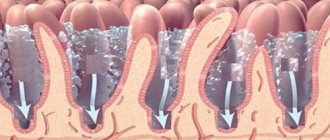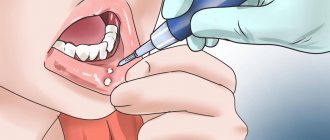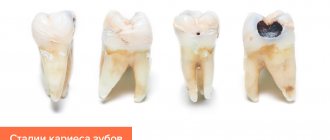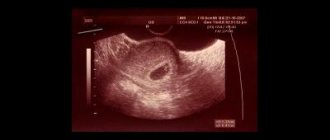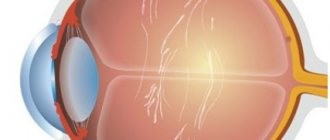Glossalgia of the tongue: causes and treatment
Content:
Types of glossalgia
Causes of the disease
Clinical manifestations of glossalgia
Diagnosis and treatment of glossalgia
Prevention of tongue diseases
Doctor's advice
Answers on questions
Treatment of glossalgia of the tongue includes an integrated approach. The following may be involved in therapy: dentist, neurologist, endocrinologist, gastroenterologist.
Glossalgia – what is it? A dental disease, the symptoms of which are discomfort and a burning sensation in the tongue.
Glossodynia: what is it?
Pain and other unpleasant sensations in the tongue area occur with glossalgia, or glossodynia. These are two names for the same disease: “gloss” means “tongue” in Greek, and the roots “algos” and “one” mean “pain.” Glossalgia is a functional disorder, without organic changes in the organ; in other words, the functions of the tongue are disrupted, but its structure remains healthy.
It is noteworthy that glossodynia does not occur on its own, but is always caused by a provoking disease or another cause. The main provocateurs are diseases of the digestive and endocrine systems.
The disease can also be caused by:
- diabetes mellitus;
- heart problems;
- cerebrovascular accidents, stroke;
- liver dysfunction;
- drug overdose;
- mechanical damage to the mucous membrane of the tongue due to deformation of the tooth crown, surgery, incorrect filling or prosthetics procedure.
Types of glossalgia
Based on the location of pain, there are:
- mandibular glossalgia – pain in the area of innervation of the inferior alveolar nerve;
- maxillary - in the area of the second branch of the trigeminal nerve;
- mandibular-maxillary – a combination of the first two;
- glossopharyngeal – pain in the vagus and glossopharyngeal nerves;
- frontoparietal - discomfort begins with the skin of the forehead, temples, then moves to the oral cavity;
- occipital - pain sensations begin in the back of the head with subsequent transition to the oral cavity.
Treatment methods
Therapeutic measures begin with complete sanitation of the oral cavity:
- filling carious lesions;
- replacement of incorrect prosthetic structures;
- replacement of defective and outdated fillings.
New dentures will help shape the jaw relationship, and visiting highly specialized doctors - a neurologist, endocrinologist, psychotherapist, etc. will help adjust treatment tactics and achieve better results.
The main therapeutic method is the elimination of pain. So, the doctor can prescribe medications with vitamin B, bromine and iron, tranquilizers and sedatives, and nerve blockade.
For dry mucous membranes and a small amount of saliva - Vit A solution (to moisturize and increase salivation). It is possible to use reflexology and physiotherapy.
It is important to be attentive to your mental and emotional state - relaxation and breathing exercises.
Clinical manifestations of glossalgia
Symptoms of glossalgia:
- the presence of paresthesia - a sensitivity disorder of the oral mucosa, manifested in the form of burning, tingling, numbness (patient o);
- diffuse pain without clear localization;
- dry mouth;
- the feeling of heaviness and swelling of the tongue is disturbing - patients have difficulty speaking, speech is sluggish;
- in 30% of patients, a violation of taste sensitivity is detected;
- saliva is scanty, viscous;
- headaches, increased fatigue, sleep disturbance.
The first signs of glossalgia: burning, tingling in the tongue, feeling of fatigue after speaking. If you have these symptoms, we recommend that you contact a dentist in Moscow.
General information
Glossalgia refers to diseases of the tongue, as the sympathocomplex has a number of causes: neurogenic, symptomatic, ischemic, caused by local factors. Usually the process is polyethylogical and does not cause morphological changes; it is expressed in the form of paresthesia and hyperesthesia , which are felt as a burning sensation and perversion of taste.
The course is long-term, from several months to several years, and is associated with systemic diseases, psychological disorders or depression .
Very often, the burned oral mucosa is considered exclusively as one of the symptoms of systemic diseases, especially those affecting the nervous system, and through local irritants, glossodynia manifests itself and increases discomfort, leading to relapse.
Diagnosis and treatment of glossalgia
Diagnosis consists of a thorough history taking and examination of the oral cavity. If necessary, the doctor may prescribe additional diagnostics: computed tomography.
Treatment:
- Sanitation of the oral cavity: elimination of carious cavities, removal of damaged teeth, replacement of failed orthopedic structures, grinding of sharp edges of fillings.
- Periodontal treatment: professional oral hygiene (removal of tartar and plaque).
- In the absence of teeth: prosthetics on implants, installation of bridges.
- Prescription of multivitamin complexes.
Important: if there are structures made of dissimilar metals in the oral cavity, replace them with dentures made of one metal alloy.
If necessary, the dentist can refer the patient to a psychotherapist to prescribe antidepressants and tranquilizers. This is relevant when the causes are stress, anxiety, depression, etc.
Do not self-medicate, consult a doctor!
Don't wait for your condition to worsen!
Sign up
Reasons for appearance
This disease belongs to the genus of polyetiological ones. This means that a variety of reasons can lead to its appearance:
- injuries to the oral mucosa;
- problems with the gastrointestinal tract;
- disturbances in the functioning of the hypothalamus;
- nervous system disorders;
- side effects from taking medications.
Mouth injuries
Injured mucous membranes of the oral cavity are called the main cause of glossalgia. Microtraumas caused by foreign objects and sharp edges of teeth lead to impaired blood circulation in the capillaries, which results in stagnation of blood in the mucous membrane.
Endocrinology
Disturbances in the functioning of the gastrointestinal tract and their chronic diseases are the second common cause of unhealthy sensations in the tongue. Most often, people with reduced gastric secretion, chronic colitis, cholecystitis, and hepatitis suffer from this.
Hypothalamus
Pathologies of the hypothalamus lead to disruption of all basic functions of the body, including such important ones as: the cardiovascular system and the digestive system. These deviations are also reflected in the state of the tongue.
Nervous system
Nervous disorders, depression, constant stress, overwork, or psychological trauma are another reason.
Side effects
A famous expression says: “everything is medicine and poison.” Some medications, when used in incorrect proportions or when the body is sensitive to taking them, give side effects, expressed in glossalgia.
Other reasons
Other causes include: stomatitis, infectious inflammation of the tongue, salts of heavy metals and other chemical poisoning.
Prevention of tongue diseases
To prevent the development of tongue pathologies, it is important to promptly engage in the prevention of oral diseases. It consists of:
- professional hygiene: removal of dental plaque;
- selection of household hygiene products (brushes, pastes, floss, tongue scrapers, rinses);
- elimination of sharp edges of fillings and failed prostheses.
Regular professional and home hygiene will help maintain the health of your teeth and entire oral cavity.
Classification
With neurogenic development factors, burning pain syndrome is called glossodynia . It is an organic pathology of the nervous system and is usually caused by neuralgia , neuropathies of the lingual or glossopharyngeal nerve , ganglionitis of the submandibular or sublingual autonomic node , irritation of pain from the cervical part of the autonomic trunk or functional pathology with sympathalgia , a paresthetic sensory phenomenon against the background of bulbar disorders.
Glossodynia is more common in women over 30. Depending on the form and location of paresthesia, they are distinguished:
- mucosal glossopharyngeal form of glossodynia - concentrated on the root of the tongue, pharynx and cervical region of the esophagus;
- dermatomucosal form - when not only the oral mucosa is burned, but also the skin of the face.
Glossalgia is a particular manifestation of stomalgia , a disease manifested by constant pain and paresthesia of the mucous membranes and organs of the oral cavity. The burning sensation spreads not only to the tongue, but also to the palate, gums, mucous membranes of the cheeks, and throat.
Answers on questions
Is it possible to cure this disease at home?
It is impossible to cure this pathology with any home remedies. The use of pharmaceutical products without a doctor's prescription leads to complications. It is recommended to contact a dental clinic at the first symptoms.
What are the complications of glossalgia ?
The disease does not have serious complications, but significantly disrupts the patient’s daily life. In some cases, eating becomes difficult, and long conversations tire the patient. Headache and sleep disturbance are also observed. In addition, the disease can become chronic: periodically the discomfort goes away, then returns again. Therefore, treatment should not be delayed.
Complications
Glossalgia does not pose a major threat to health, but its symptoms greatly reduce the quality of life. If unpleasant symptoms are not treated and ignored, the process may become chronic. Over time, the psyche and emotional expression will be disturbed, with the background development of anxiety, eating and sleeping disorders. If glossalgia and the condition of the body are aggravated, treatment should be performed not only by dentistry, but also by doctors - a neurologist, psychiatrist or psychotherapist.
Possible complications include:
- aphthous stomatitis;
- glossitis;
- gingivitis.
Clear signs of glossalgia
The symptoms and general nature of a disease such as glossalgia occur in different ways. Some symptoms extend over long years or months. Therefore, in this case, experts diagnose the disease as periodic or general glossalgia. Although the signs of the initial stage of the disease are not very pronounced, they still intensify over time. Due to this, experts identify a systematic series of symptoms of glossalgia, which include:
- tingling, rawness, burning sensation in the tongue area. These unpleasant sensations are both periodic and permanent. The intensity of pain increases when eating spicy food and under the influence of some other external irritants;
- constant dry mouth;
- bulimia, which can progress if treatment for glossalgia is delayed for any reason;
- nutritional increase in body weight, due to the fact that glossalgia disappears for a short time after eating, so patients resort to eating immediately after the pain disappears;
- fatigue during a conversation.
- burning and discomfort on the lateral areas of the tongue or on the root and back of the organ;
- slight swelling;
- plaque on the mucous membrane of the tongue;
- phlebeurysm.
As noted earlier, glossalgia does not have a clearly defined lesion, so the location of the unpleasant sensations may vary. Sometimes glossalgia goes away on its own, but more often patients still require medical attention. After all, as such, changes in the oral cavity and mucous membrane of the tongue are completely absent. However, glossalgia can be diagnosed by some indirect signs. Especially when a patient with glossalgia often begins to become depressed and suffers from excessive excitability, anxiety, suspiciousness, and sometimes autism. At this moment, the patient can pay increased attention to detail, delving into the specifics of his condition. He easily loses his temper and becomes aggressive over the most insignificant reasons. In addition, a patient with glossalgia may suffer from cancerophobia or fear of other serious diseases. Also, the symptoms of glossalgia are aggravated by a neurotic state, which leads to sleep disturbances, cardialgia, and spastic colitis. At the same time, due to changes in mental state, the patient most often refuses the help of doctors or treats glossalgia with folk remedies, which often leads to serious consequences and complications.
